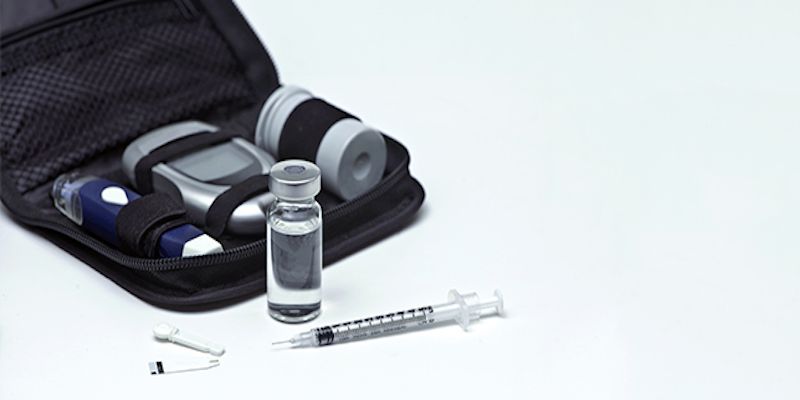- Bone Health
- Immunology
- Hematology
- Respiratory
- Dermatology
- Diabetes
- Gastroenterology
- Neurology
- Oncology
- Ophthalmology
- Rare Disease
- Rheumatology
Dispelling Doubts: Review Affirms Safety, Efficacy of Biosimilar Insulins
A recent review confirms the safety and efficacy of biosimilar insulins, addressing concerns and promoting their adoption for diabetes treatment.
Despite the growing presence of biosimilar insulins in the market, a new narrative review underscored persistent concerns among health care providers and patients regarding their efficacy, safety, and quality compared with reference products.1
Image credit: 86008201-644px - stock.adobe.com

The review, published in Diabetes, Obesity and Metabolism, dissected the rigorous regulatory pathways in the European Union (EU) and the US, ultimately confirming the safety of insulin biosimilars and confirming that people with diabetes and prescribers should be able to use approved biosimilars without concerns.
Authors of the review highlighted that although 6 biosimilar insulins were approved in the EU and 4 in the US, their commercial success had been limited, largely attributed to lingering skepticism.2 To address these concerns and provide a definitive answer on the comparability of biosimilar insulins, the narrative review examined the regulatory framework and pivotal studies supporting the registration of these products in the EU and US.1
The study emphasized the multifaceted approach taken by regulatory bodies. It detailed the necessity of:
- Comparative analytical and functional studies: These confirmed the primary, secondary, and higher-order structures of the biosimilar, along with post-translational modifications, ensuring molecular similarity.
- Comparative preclinical studies: These investigated receptor binding and activation in cell models, assessing how biosimilar insulins induced their effects. For insulin, this included affinity to insulin receptors and studies on metabolic activity in cell cultures.
- Pivotal clinical pharmacology studies using the euglycemic glucose clamp technique: This was the cornerstone of biosimilar insulin approval. In a double-blind, crossover design, a single subcutaneous dose of the biosimilar and reference insulin was administered, and blood glucose levels were meticulously "clamped" at a predefined level using a variable glucose infusion. The glucose infusion rate profile directly reflected the insulin's pharmacodynamic effect, while frequent blood samples established the pharmacokinetic profile. This highly sensitive method was preferred, as it could detect subtle differences that larger clinical efficacy studies might miss.
- Supportive larger phase 3 studies: Although not always strictly required for approval due to the sensitivity of clamp studies, these trials provided additional data on clinical safety, efficacy (eg, HbA1c), and immunogenicity.
The authors noted that both the European Medicines Agency (EMA) and FDA shared identical acceptance criteria for pharmacokinetic endpoints, with EMA having stricter criteria for pharmacodynamic endpoints. It also pointed out that whereas initial approvals involved multiple clamp studies, more recent approvals had relied on a single pivotal automated clamp study, consistently confirming biosimilarity.
The review was prompted by the low adoption of biosimilar insulins, despite their potential to reduce costs.2 Ongoing hesitation from prescribers and patients revealed a clear gap in understanding around the rigorous approval process for these biologics.3 By explaining the scientific standards behind biosimilar regulation, the review aimed to dispel misconceptions and build trust.1
According to the researchers, their findings carry important implications for the biosimilar market and the US health care system. By confirming that biosimilar insulins are just as safe and effective as their reference products, the review supports increased uptake, which could help expand market share. Broader use may also lead to price competition, resulting in lower insulin costs and improved access for patients.
The review reinforced how evolving FDA guidance on interchangeability could make pharmacy-level substitution more feasible, improving convenience and access for patients.
“A clear regulatory framework ensures the efficacy and safety of biosimilar insulins in Europe and the US (and many other countries not considered in this review). This regulatory framework is based on scientific evidence that the demonstration of similar physico‐chemical properties and biological activity in preclinical studies and of pharmacological bioequivalence in glucose clamp studies is sufficient to make sure that the minor differences in the formulations between biosimilar and reference insulins are not of clinical relevance,” the authors concluded.
References
1. Heise T, DeVries JH. Biosimilar insulins: Narrative review of the regulatory framework and registration studies. Diabetes Obes Metab. 2025;27(Suppl 5):16-23. doi:10.1111/dom.16320
2. Heinemann L, Davies M, Home P, Forst T, Vilsboll T, Schnell O. Understanding biosimilar insulins – development, manufacturing, and clinical trials. J Diabetes Sci Technol. 2023;17(6):1649‐1661. doi:10.1177/19322968221105864
3. White J, Wagner A, Patel H. The impact of biosimilar insulins on the diabetes landscape. J Manag Care Spec Pharm. 2022;28(1):91‐98. doi:10.18553/jmcp.2021.21253
Newsletter
Where clinical, regulatory, and economic perspectives converge—sign up for Center for Biosimilars® emails to get expert insights on emerging treatment paradigms, biosimilar policy, and real-world outcomes that shape patient care.
